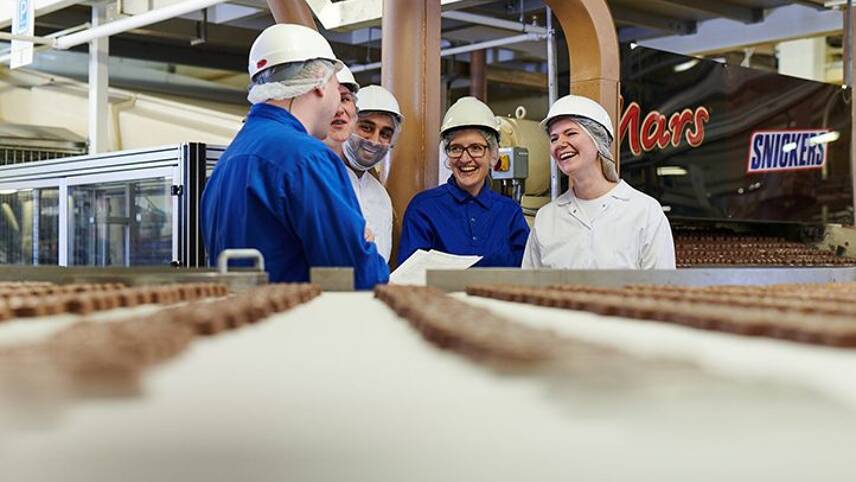Register for free and continue reading
Join our growing army of changemakers and get unlimited access to our premium content

Since 2015
Mars has confirmed its intention to achieve a net-zero value chain by 2050. The company will join the Science Based Targets Initiative’s “Business Ambition for 1.5C pledge” and the UN’s Race to Zero initiative.
The company will publish a full net-zero roadmap in 2022, but will also set five-year milestones to drive climate action and is linking executive pay to decarbonisation. An existing pledge to end deforestation in its supply chains will also help deliver on the net-zero ambition.
Mars chief executive Grant F. Reid said: “The scale of global intervention must be bolder and faster. Climate change is already impacting the planet and people’s lives. To mitigate this real and tangible threat, the science tells us net-zero targets must be broad in their reach, capturing emissions across the entire value chain and plans need to have material, interim targets. We can’t wait decades to see progress.
“However, all too often, this simply isn’t the case – and the gaps that exist in some net-zero commitments risks undermining their credibility, and even more importantly, the climate action movement. We can’t allow that to happen. To deliver meaningful impact and ensure it is fit for purpose, our net-zero target covers our entire GHG footprint, from how we source materials through to how consumers use our products and, we’re mobilising our entire business around taking action now and hitting interim targets every five years.”
As part of the wider commitment, Mars’s largest brand, Royal Canin, has also committed to become certified carbon neutral by 2025.
Progress to date
The new net-zero commitment builds on the existing Sustainable in a Generation Plan, and expands on previous pledges to reduce value chain emissions by 67% by 2050 and 27% by 2025.
Since 2015, the company has reduced its value chain emissions by more than 7%, despite growing the business. For direct operations, emissions have fallen by 31% and Mars is on track to reach an interim target of 42% by 2025.
Earlier this year, Mars announced that it had agreed on a new power purchase agreement (PPA) to provide renewable energy that will cover more than 100% of its needs across 2,000 veterinary hospitals in the US.
The PPA, signed with Apex Clean Energy, will enable the construction of a 121.26 MW wind farm in Ford Ridge, Illinois, that will become operational by the end of the year.
The PPA will build towards Mars’ global goal of using 100% renewables across all its operations by 2040. Once completed, the US will then become one of 11 nations where Mars is covered by 100% renewables. This accounts for more than 50% of its global electricity needs.
The company has also partnered with PepsiCo and McCormick to launch a new coalition aimed at encouraging suppliers to reduce carbon emissions in alignment with climate science.
The three firms are the first corporate members of the Supplier Leadership on Climate Transition (Supplier LoCT), a new collaborative effort to provide suppliers with resources, tools and the knowledge to develop ambitious carbon reduction strategies.
Through Supplier LoCT, which has been set up in partnership with consultancy Guidehouse, end-user corporates will help suppliers understand how greenhouse gas emissions can be measured and reduced in their own businesses by setting science-based targets and joining business commitments such as the RE100.
Mars is currently engaging its largest 200 suppliers to decarbonise. To date, 23 of these major suppliers have set science-based targets or joined the RE100 and Mars is now working with another 30 firms to enroll in the new supplier programme.
“This is going to be a significant challenge, and we won’t be able to achieve net-zero without the collaboration of our Associates, suppliers, customers, consumers and industry partners. It’s so important that we work together to drive scale and reach,” Reid added.
“We need to overhaul the supply chains which power global business and put an end to deforestation and the conversion of natural ecosystems to drive meaningful change now. We can’t use long-term ambitions as an excuse for inaction and delay.”
Matt Mace


Please login or Register to leave a comment.